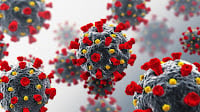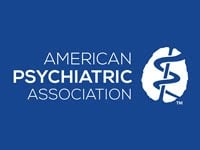Study Identifies Factors Associated With Negative COVID-19 Experiences

Family structure, socioeconomic status, and the experience of racism were primarily associated with negative impacts of COVID-19 across family generations in minority communities, more so than preexisting medical or psychiatric conditions, reports a study published yesterday in JAMA Psychiatry.
“[T]hese data raise the possibility that interventions aimed at the community level (e.g., provision of childcare, increased access to school meals, universal basic income to cover fundamental needs, continued COVID-19 unemployment assistance) might be effective in either preventing or combatting negative COVID-19 experiences across multiple generations within a single family,” wrote Sarah Yip, Ph.D., of the Yale School of Medicine and colleagues.
Yip and colleagues used data from the Adolescent Brain and Cognitive Development (ABCD) Study, a long-term study of brain development and child health in the United States. “The availability of baseline, pre–COVID-19 data from this cohort … provides an unprecedented opportunity to quantify transgenerational predictors of COVID-19 experiences,” the authors wrote.
Upon enrollment in the ABCD Study, children and their parents answered questions about their socioeconomic status, the child’s mental and physical health, and family psychiatric history, among others. In total, the baseline assessments—collected between 2016 and 2018—included more than 17,000 characteristics. Participants then completed COVID-19-related questionnaires between May and August 2020, covering topics such as school attendance, family stressors, access to needs, social distancing, screen time, mental health, change in routine, sleep, and physical activity.
Among the 9,267 youth and their caregivers, the authors found that social determinants of inequity, including lower socioeconomic status, living in single-parent households, and experiencing racism, were primarily associated with negative COVID-19 experiences, such as food insecurity and financial worry. During the pandemic, non-White families and Spanish-speaking families had fewer resources and increased financial worry and experienced food insecurity. In contrast, White families and families who had higher incomes before the pandemic or a parent with a postgraduate degree experienced less impact associated with the pandemic, as indicated by factors such as less food insecurity and financial worry. Children from these families reported sleeping longer, less difficulties with remote learning, and decreased worry about the impact of COVID-19 on their family’s financial stability.
The analysis also revealed that parents from non-White families and Spanish-speaking families were more likely to have discussions with their children regarding COVID-19 health and prevention, such as handwashing, conserving food, protecting elderly relatives, and isolating from others than those parents in families experiencing fewer negative impacts from COVID-19.
“Our results underscore that families most affected by inequity during COVID-19 were more likely to abide by safe practices such as social distancing and handwashing, despite a popular narrative that individuals from these communities are less likely to engage in such behavior,” the authors wrote.
“[O]ur investigation is consistent with the interpretation that individual behavior alone cannot singly affect or mitigate health outcomes. Rather, psychosocial factors such as built environment, access to education, racism, and parental and community support all play pivotal roles in promoting health equity.”
For related information, see the Psychiatric Services article “COVID-19, Structural Racism, and Mental Health Inequities: Policy Implications for an Emerging Syndemic.”
(Image: iStock/BlackJack3D)
Don't miss out! To learn about newly posted articles in Psychiatric News, please sign up here.






